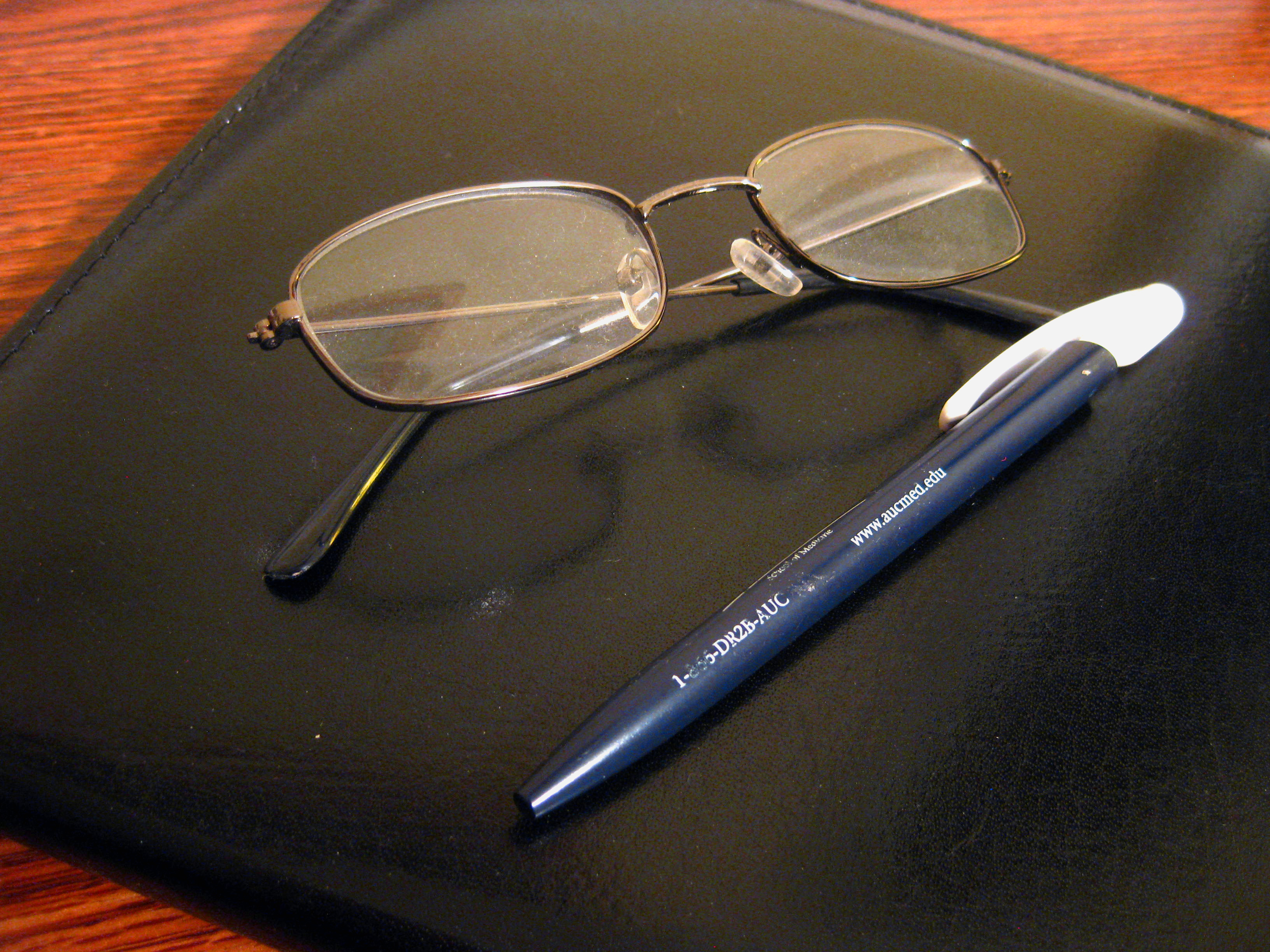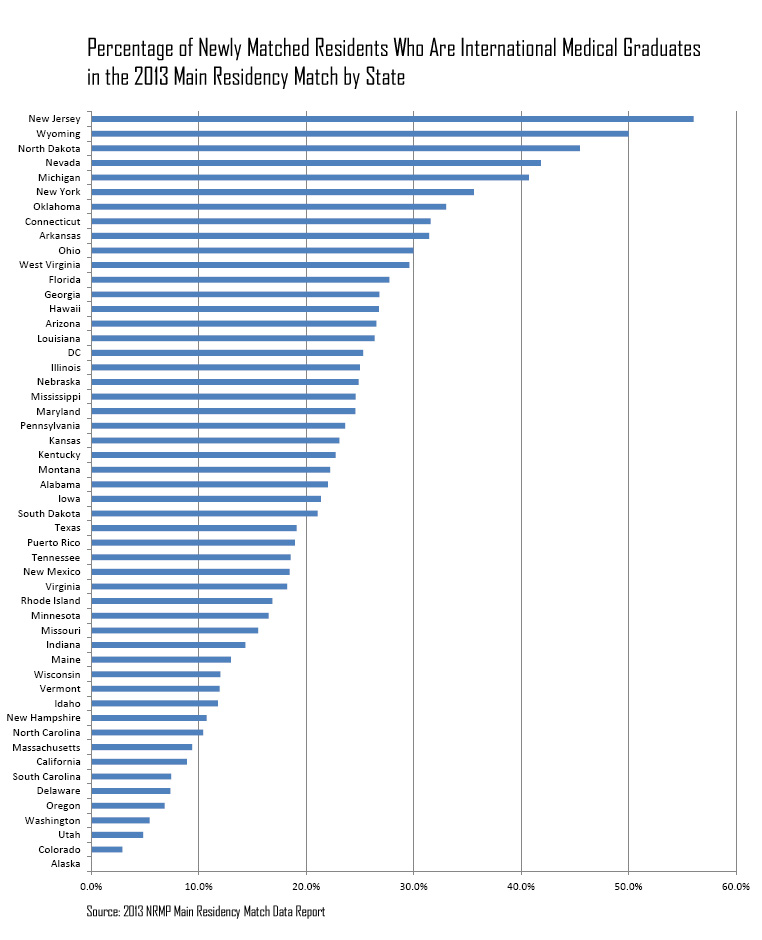Questions to Ask and Be Asked on Residency Interviews
 Late October through early February is a crucial time for those applying for residency programs. It is the interview season. In these past few months, I have visited several different programs. I have put together a list of questions that I have been asked during my interviews, as well as questions that I have asked the interviewers. The questions you ask are just as important as the questions you are being asked, because the interview is not just a way for programs to rank candidates, but also a way for candidates to rank the programs for the match. Hopefully this list of questions would help you prepare for the interviews.
Late October through early February is a crucial time for those applying for residency programs. It is the interview season. In these past few months, I have visited several different programs. I have put together a list of questions that I have been asked during my interviews, as well as questions that I have asked the interviewers. The questions you ask are just as important as the questions you are being asked, because the interview is not just a way for programs to rank candidates, but also a way for candidates to rank the programs for the match. Hopefully this list of questions would help you prepare for the interviews.
Typical Interview:
Most programs interview from late October until late January. Some even continue interviewing until the first few days of February. There are many different styles of interviews that you will encounter. I can only speak for family medicine interviews, because that is all I applied to. Most interviews I’ve had started in the morning around 8am or so, then finished by 2pm or so. Most interviews also included a dinner with residents the night before the interview. Although these dinners are “casual” and a great way to get to know the residents and have some of your questions answered in an informal setting, they are certainly part of the interview, and so it’s important to be your best (and also wear business casual). Some programs will provide you a free hotel stay, while others may not. In most interviews, you will speak with 3-4 interviewers, maybe more, with half hour per interviewer or so. The interviewers may be faculty, residents, and program directors. In family medicine residency interviews, you’ll also often interview with a clinical psychologist. Some interviews will feel more natural like a conversation, while others may feel more structured in question-answer format. Some interviews will have a group activity (see how well you work with others), while others may require you to take a test (though this is not common, and I’ve never personally experienced it). All interviews will come with lunch with residents and/or faculty, as well as a tour of the hospital facilities. In many interviews, you will also sit in for a morning report, grand round, or some other precepting session. The order in which you do the interviewing, hospital tour, lunch, group activity, and rounds varies from program to program.
The top three most common questions on the interview trail:
- Why family medicine? (or whatever specialty you are applying for)
- Why this program?
- Tell me about yourself.
Other possible questions you may be asked:
- What do you look for in a residency program?
- Why did you switch from architecture to medicine? (or a question about something that stands out in your application, good or bad)
- Teach me something.
- How do you handle stress?
- What can you bring to our program? (know your strengths, and have more than just one)
- What challenges do you foresee in residency?
- Tell me about a time when you regret doing something and how you dealt with it.
- Tell me about a time when you had to do something that you didn’t plan on doing, and how you dealt with it.
- Tell me about a time when you had a clashing with a colleague and how you dealt with it.
- Tell me about a case you’ve seen during your rotations that really affected you.
- Would moving here be an issue? (particularly if you are from a place far away from the program)
- What do you like to do in your free time? (PLEASE don’t say you like to read medical journals during your free time! They want to see that you are a normal person with hobbies and have a decent social life, which would help you get along with your colleagues.)
- Where did you do your rotations? How did you like them?
- What was it like going to medical school in the Caribbean? (you can say both negatives and positives, but emphasize the positive aspects and what you’ve gained out of it and why that makes you a better candidate)
- Do you have any questions for me? (Be prepared to have a lot of questions in mind! Be program-specific with some questions, so that they know you have really researched and considered the program)
- Tell me about the recent changes in healthcare. (Wants to see if you keep up with the news and have an understanding of the health care system)
- How much does it cost to wash all the windows in Montana? (this was the most unexpected and interesting question I got, but the interviewer wanted to see how I think, and how I would feel or react to such a question)
Questions you should ask the residents:
Note: Although I have split these questions into what you should ask a resident and what you should ask a faculty, in reality, many of these questions are appropriate for both, and asking the same questions to multiple people can be helpful in getting broad perspectives from different people.
- How are you? Where are you from? Where did you go to school? (make friendly conversation)
- What do you think about the program?
- Why did you decide to come to this program?
- If you were to do it over again, would you come to this program again?
- How do you like living here?
- What is there to do around this town? any outdoors activities? good restaurants? etc.
- Do you all hang out outside of work?
- How is the relationship between the staff, faculty, and residents? Does everyone get along?
- How much does it cost to live here?
- What do you like to do outside of work?
- What is your favorite rotation?
- What are the didactics like?
- Do you participate in any research? projects? community service?
- Do you carry your work home with you (i.e. beeper)?
- What do you do during your _______ rotation?
- Do you feel you get enough training? procedures?
- Do you feel there is anything missing or needs improvement in the program?
- Do the faculty listen to residents’ concerns?
- Are you able to fulfill your numbers without problems? (ACGME requires residents to have certain number of procedures/patients/experiences)
- Are there many residents with families here? with kids? How are the schools here? Daycare? (see how “family-friendly” the program is, especially if you are married and/or have kids).
Questions you should ask the faculty:
- What do you look for in an ideal resident?
- How are residents evaluated?
- Are there any training in practice management?
- Do residents participate in any community outreach activities?
- What do you feel are the strengths of your program?
- What do you feel needs improvement in your program?
- Do you foresee any changes happening in the next few years?
- How is family medicine (or whatever specialty you are applying to) seen by the other departments?
- How has the program changed over the years? (especially if the faculty member used to be a resident)
- What do most graduates end up doing?
- How do residents do on the board exam?
- What do graduates say about the program after they leave?
- What are the patient demographics? Any opportunities to work with minorities? Use Spanish?
Things to look up on the program’s website before the interview (so you don’t have to ask about them):
- Who is the program director? Who are the faculty you are interviewing with? Who are the residents you will meet for dinner/lunch/tour? What year are they? Get the names right!
- Is the program opposed or unopposed? What other programs are in the same hospital?
- What unique rotations are in the curriculum? (so you can ask about it in your questions for the residents/faculty)
- Do residents have on-call nights or night floats? (usually you can find this in the curriculum)
- Mission statement or message from program director (get insight into what the program is looking for)
Dos:
- Be nice to everyone, including all the staff members, patients, and other people who may not have a role in the actual interview. The program will observe how you interact with other people. They are looking not only for people who are smart, but also people who know how to communicate well with others.
- Dress appropriately.
- Show up to the dinners and interviews on time or early (5-10 minutes early). Never show up late.
- If you have to fly to an interview, I would recommend either bringing your suit as a carry-on or wear your suit onto the plane, just in case the plane loses your luggage (which surprisingly is very common).
- Send thank you notes to each person you interviewed with, including the program coordinator ans program director. You could also consider sending thank you notes to residents who took their time out to meet you for dinner, lunch, or took you on a hospital tour. Ask the program coordinator if their program prefers you send emails or written cards. While most programs may not have a preference, I have found that some do. Send the thank you notes no later than within a week of the interview.
- Towards the end of the interview season, i.e. late January or early February, write a letter of interest to your top residency choice(s), expressing your particular interest in their program.
- This is cliche but true: be yourself.
Don’ts
- Don’t ask questions that have answers that can easily be found on the website, like if its opposed vs unopposed, how many residents, who is the program director, etc. Asking these questions will make you appear like you are not interested enough in the program to have done research on it.
- Don’t ever talk bad about another program, or about the other candidates. During group interviews or group activities, don’t embarrass or make the other candidates look bad. This makes you look bad.
- Don’t ask about salary or days off. The program wants to see you are willing to work hard, without concern for salary.
- Don’t ask where the program will be ranking you. They are not obligated to answer that question. Plus, it’s inappropriate to ask that during an interview, or at any time.
To Second Look or Not to Second Look?
If you are interested in a program, and want to go back after the interview to take a look at it again, and spend more time getting to know the faculty and residents in a non-interview setting, it may be a good idea go back for a “second look.” Some programs offer second look events to all candidates, while others may not offer second looks to everyone. Some programs do not do second looks. There are many opinions about whether or not you should ask programs if you could come back for second looks.
Personally, I would not recommend asking, and suggest only going to a second look if the program invites you to one. Programs are often busy enough that having someone request an uninvited visit may be an extra burden on them. However, others may disagree and argue that asking for a second look may show a program that are you interested. Ultimately, it’s your choice. If you were to ask for a second look, don’t ask for it on interview day. Interview day is supposed to be the main day where you make the most of your time to get to know everything you can about the program. Asking for a second look to learn more about the program on the main day that you are supposed to do this may make it seem like you aren’t taking full advantage of your interview day to get to know the program.
If you do get invited for a second look, consider going if you have difficulty deciding where to rank a program, and want to see the program again to help you make a better decision (especially if it was one of your earlier interviews and you don’t remember as much about it as your more recent interviews). Don’t skip an interview at one program to go to a second look at another. Also, don’t feel obliged to go to a second look that you were invited to if you cannot make it. Many programs understand that traveling is expensive, and many people who are interested in the program may not be able to make it to a second look for whatever reason. Most programs will tell you that it shouldn’t affect how they rank you.
Conclusion:
In the beginning of the interview season, you may have a general idea of what you are looking for in a program, and find yourself asking general questions. But as you do more and more interviews, you will find differences here and there between the programs that you like or not like. By the end of the interview season, you will have a very good idea of what you are looking for in a program, and your questioning may become more specific to what you are looking for.
You’ll find yourself asking the same questions over and over at every interview, which are often the same questions that other candidates will ask during interviews. You will also find that many programs will give similar answers, and most of them sound great. Your interviewers will be well rehearsed in giving the same answer, since afterall they would have already answered your same questions to numerous other interviewees before you. Although the answers to your questions can be important, I would argue that even more important is how you feel after you walk out of the interview. In the end when you put together your Rank Order List (ROL), you won’t remember the answers to all those questions. What you will remember is how you felt being there. Did you get along well with the people there? Do you feel comfortable and safe in the setting and location? If we put together a pros and cons list, we’ll find that no place is perfect, and most places are very similar to each other. Because of this, choose the place where you’ll feel most happy, because you will be dedicating the next few years of your life there.
Best of luck everyone!
Benji
Links for Residency Interview and Match
- How to Apply for Residency
- How to Improve your MSPE Letter
- Most IMG-Friendly States
- How to Prepare for Residency Application Season
- How Many Residency Programs to Apply to?
- Questions Asked During a Residency Interview
- Dos and Don’ts of Residency Application and Interview
- How to Dress for a Residency Interview
- Following Up After a Residency Interview
- Tips on Ranking Residency Programs














Hi Benji! I must really thank you for the amount of hardwork you’ve put into your articles. This is the single most, explicitly detailed website I’ve found for USMLEs.
Great work there! Hope to see more from you 🙂
Thanks for reading and happy new years!
Hi Benji, This is so great
Thanks a lot for this article.
Its the best I have ever read!
Well done.